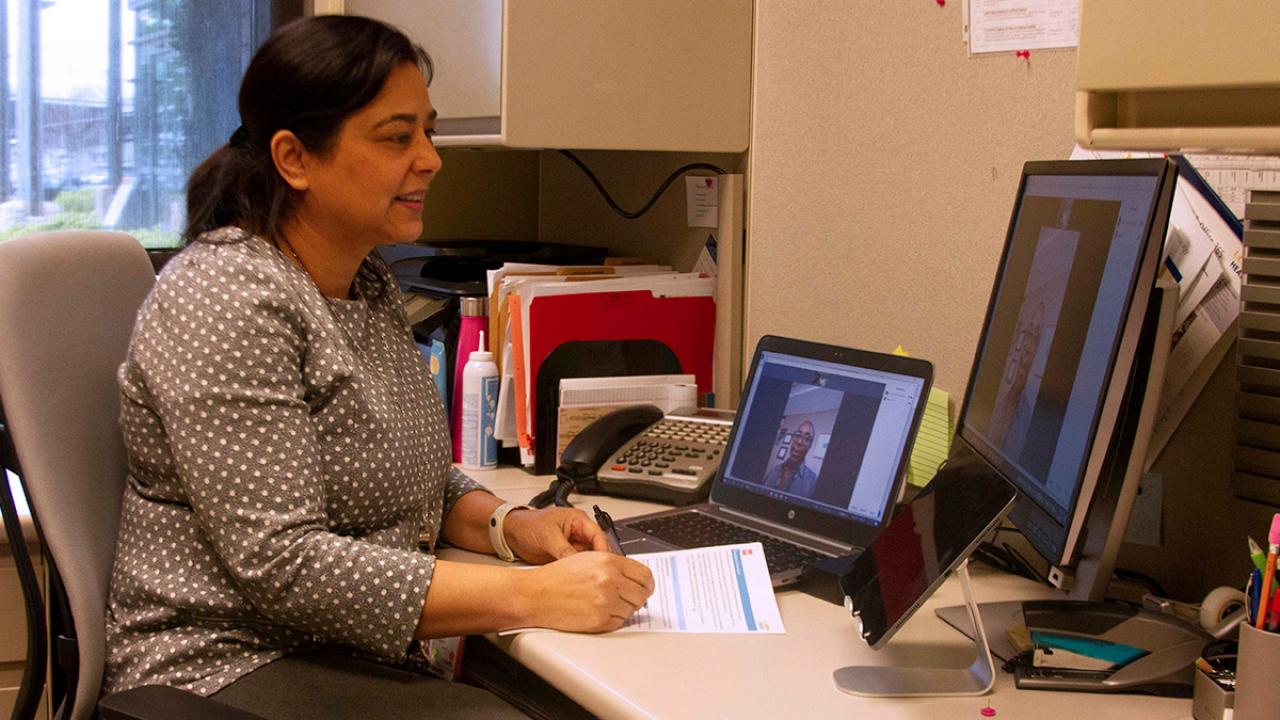Not even COVID-19 could stop MIND Institute providers from delivering much-needed care to their patients with neurodevelopmental disabilities.
Fortuitously, UC Davis MIND Institute clinic providers started offering telehealth care services a year ago to their patients, especially those who live far away or with limited transportation options. These providers — psychologists, social workers, pediatricians, psychiatrists and genetic specialists — can connect from their offices or clinic rooms. With the coronavirus pandemic, what was an option became a necessity.
“Through telehealth, we are still available to support the children and families that we serve,” said Dorcas Liriano Roa, director of psychological and behavioral services for the Massie Family Clinic at the UC Davis MIND Institute. “The MIND psychologists, social workers and pediatricians have been very resourceful and learned about telehealth assessment practices in order to continue their work.”
Besides maintaining clinical visits, telehealth is a connecting tool for social support of families and kids with neurodevelopmental disabilities. For the past 15 years, the MIND Institute has offered a social skills training group for children with autism spectrum disorder and their families. This group experience can be a very important part of their lives, as they look forward to connecting with peers.
When the March 19 stay-at-home order was issued, face-to-face social skills groups were canceled, but they have since resumed, with social skills leaders implementing “game nights” for the participants and educational workshops for their parents, all delivered via Zoom.
“This was a creative way to maintain the group’s social cohesiveness when physical distancing is still critical,” Roa said.
The patients’ response to telehealth clinical and social visits has been largely positive; many patients have expressed gratitude to be able to continue to receive care.
